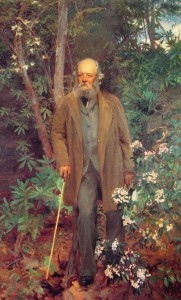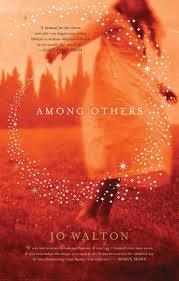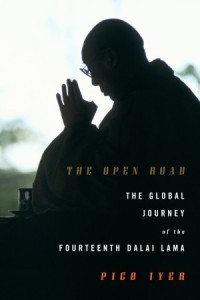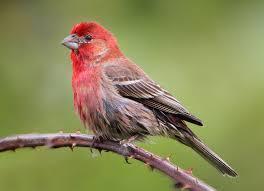Robyn Ryle's Blog, page 9
July 2, 2015
Books I read in June
My husband and daughter left me AGAIN in June, though this time for a shorter period of time. Also at the beginning of the month, I got sick. Like, running a fever, feel like death, coughing so much I couldn’t sleep in the same bed with my husband kind of sick. It sucked, and honestly, I’m not sure it’s completely gone even now. But it made for some good reading time. Here’s some of the best of what I read last month:
Vanessa and Her Sister, by Priya Parmar. This was a really interesting new perspective on Virginia Woolf and the Bloomsbury Group, told from the perspective of Virginia’s sister, Vanessa Bell. There was a lot of stuff I didn’t know about their relationship, which seems much rosier when told from Virginia’s perspective, which it usually is. I wasn’t sure about the fragmented nature of the narrative at first–it includes a lot of notes and letters from Leonard Woolf and Lytton Strachey. But it worked really well in conveying the way they really did lead a life in letters. Just a very well-done book.
We Are All Completely Beside Ourselves, by Karen Joy Fowler. I think I stumbled onto this through a Goodreads list. It’s based on a real-life experiment where families adopted chimpanzees and attempted to raise them as human children. In this fictional account, things go a little further. The book was really well-written and raises a whole host of interesting questions about what makes us human, as well as about the nature of family.
Bone Gap, by Laura Ruby. A lovely little young adult novel with some fantastical elements, but also very much about a community. And of course, I’m a sucker for stories about communities and towns and places. My step-daughter read it, too, and liked it. It was a good introduction to ambiguity in story-telling–that sometimes you don’t have to have all the answers.

Olmsted as painted by John Singer Sargent
Genius of Place: The Life of Frederick Law Olmsted, by Justin Martin. I also spent a few days in North Carolina this month and had the chance to visit the Biltmore Estate. An incredibly gorgeous place inside, but the outside was designed by landscape architect, Frederick Law Olmsted–also responsible for Central Park and Cherokee Park in Louisville. I’ve always wanted to know more about Olmsted and my sweet husband bought me this book at the gift shop. Interesting, though I’m now wanting a book that’s less about Olmsted’s life and more about his life’s work.
It’s Not Me, It’s You, by Mhairi McFarlane. I’ve been hitting the shelves of new fiction at the local library pretty heavy this summer, and that’s where I found this book. What would you call it? Women’s fiction? Romance? I don’t care. It sweet and enjoyable and just perfect for the moment.
Openly Straight, by Bill Konigsberg. I’ve heard about this book for a long time. It was one of those I meant to read, so this month I finally got around to it. It’s young adult with a main character who’s gay. His sexuality is at the center of the story, but not in the way you’d expect. He’s been out since he was in 8th grade, but in order to escape the label of “the gay kid,” he moves to a all-male boarding school and sort of goes back in the closet. Then, of course, he falls in love. Great book to read in the wake of the Supreme Court’s gay marriage decision.
June 14, 2015
About “The River Fell”
A little bit about my story at WhiskeyPaper, “The River Fell.”
Fast Facts
First draft written: September 2014
Number of drafts written: 2-3
Number of rejections: 0
From submission to publication: 3 months
The idea
I go through stretches where I walk along the river every day. Usually in the morning. Yes, one of those mornings, I did come across someone I know sneaking a smoke. It did make me think about being in on a secret with someone. About catching someone in that moment of vulnerability.
There was also a boy in college and whiskey. It was in a creative writing class with Clyde Edgerton. We had to act out short stories. His skit involved whiskey as a prop. He took a long drink and just for that moment, he was someone completely different. Then it was over.
I teach about sexuality as a college professor. Maybe I think about it more than most, I don’t know. I’m certain it’s an infinitely complicated thing; you can’t really hope to understand it. I have so often been blind-sided by the unexpectedness of desire. I guess that’s also part of what this story is about.
But mostly I wanted to write about the river, because I love the river. There is not enough I can say about the river, but I will go on trying.
This was my first ever solicited story, by the wonderful, amazing, not-enough-words-for-how-spectacular, Leesa Cross-Smith at WhiskeyPaper. So, yay! I was happy to write something that would fit the aesthetic of WhiskeyPaper. I like writing to a specific journal, a specific style, a specific audience. I like the idea of writing something that might please someone in particular. I like that especially when I already love what that someone in particular writes, which is true for Leesa. I think it’s okay to bend yourself one way or another as a writer, towards different styles and different audiences. That seems like good exercise and a way to help you get closer to the core of what you want to write and what you want to say.
The lost line
The story was longer, and then my husband read it and said, “Cut it here.” So I did. But there was a line that got lost: “All the river does is look beautiful for us. Every day.” Which is exactly how I feel. The river is never the same. Some days smooth as glass. Some days rough and broken. Some days, with a mist coming up, you’re really not sure the river is even out there anymore.
I don’t know what else to say, except I don’t know how people live without some body of water close enough to love on a daily basis.
Chapbook
Later this year, I have a chapbook coming out with Leesa and her husband, Loran Smith’s, new press, WhiskeyPaper Press. You can order their first chapbook, Don’t Ask Me to Spell It Out, by Robert James Russell, here. The stories are really great, so you need this book.
More about my chapbook later, but I can tell you for certain that there’s baseball involved.
June 1, 2015
Books I read in May
As some of you may know, my husband left for nine days in Ireland and Scotland in May. So in addition to binge-watching two and a half seasons of Orphan Black, I also did a lot of reading. I read at least sixteen books in May. It’s hard to tell on Goodreads, because books I’ve read mysteriously disappear from my “Read” list and I have no idea why. Nonetheless, here are the highlights.
The Last Policeman, Countdown City and World of Trouble, all by Ben H. Winters. I found the first book in this mystery series at Village Lights. They’re published by Quirk Books and the author lives in Indianapolis. He’s also written Sense and Sensibility and Sea Monsters and Android Karenina, so he’s quite versatile. These books ask the question, how would you live your life if you knew the world were going to end in six months? Would you go on doing what you’re doing? Would you start hoarding guns? Would you kill yourself? Leave your wife and go to New Orleans? I love a good mystery and a good apocalyptic novel, so these were kind of perfect.
The Tusk That Did the Damage, by Tania James and The Architect’s Apprentice by Elif Shafak. I’d heard of Tania James’s novel before I picked it up off the shelf of new books at the library, but not of Shafak’s novel. I put them together because elephants were major characters in both, and this made me think about the need for more animals in my stories. In the James’s novel, the elephant really is a character–we hear his thoughts, his history. It occurred to me, why not? Why not make animals characters? It’s a long and glorious literary tradition, right? Both good reads, especially if you enjoy elephants.
From Doon with Death and The St. Zita Society, both by Ruth Rendell. How did it take me so long to find Ruth Rendell? I love mysteries. I love British mysteries. I can’t say that the first Chief Inspector Wexford book blew me away, but I love her non-Wexford mysteries, like The St. Zita Society and The Minotaur, which really aren’t mysteries at all in the conventional sense. They’re creepy and sometimes gothic and just generally fascinating.
The Hearts of Horses by Molly Gloss and A Little Love Story by Roland Merullo. Almost all the TV I watch is tense and violent. The books I read are less so, but if you’re into mysteries, there’s going to be some death and murder. I told my friend Ellen I was hankering for some quiet books and these are two she recommended. They’re perfect. I could go on and on, singing the praises of quiet books in which nothing really, truly bad is going to happen. Life is like that, too, sometimes. The world doesn’t end. No one gets killed. People fall in love, or don’t. They get over bad things. They build a community. If you know much about the publishing world, it seems like a small miracle every time you hold a book like this in your hands. A hook-less book, so to speak. Nothing gimmicky about it. Someone published this! Someone took a chance on a small and beautiful story. Bless them, bless them! We need more. There’s a lot to learn in the quiet moments, too.
 Among Others by Jo Walton. Another friend passed this book along to me. I’d heard her describe it twice as something she really liked, and her description didn’t sound like anything very good. “This girl’s mother is a witch and something horrible happened and then she goes to boarding school and reads books.” “Okay,” I said. But she was right. I don’t know why this book is good. I don’t know why I read it. There may or may not be magic. There is a lot of reading of science fiction and fantasy. There is a description of pulling a book up over your head to shut out the rest of the world. Who doesn’t remember that? I loved this book. I don’t know why.
Among Others by Jo Walton. Another friend passed this book along to me. I’d heard her describe it twice as something she really liked, and her description didn’t sound like anything very good. “This girl’s mother is a witch and something horrible happened and then she goes to boarding school and reads books.” “Okay,” I said. But she was right. I don’t know why this book is good. I don’t know why I read it. There may or may not be magic. There is a lot of reading of science fiction and fantasy. There is a description of pulling a book up over your head to shut out the rest of the world. Who doesn’t remember that? I loved this book. I don’t know why.
May 18, 2015
Book Review: The Open Road
The Open Road: The Global Journey of the Fourteenth Dalai Lama, by Pico Iyer, is not a biography. It’s not a treatise on Tibetan Buddhism or an examination of the political situation of Tibet as a nation. Pico Iyer is a travel writer, so true to the title, it’s a book about a journey. Or better yet, it’s about journeys. The first, the journey of the Dalai Lama as he moves around the world, from Japan to L.A. and then back to Dharamsala, his home in exile in India. We journey around and through Dharamsala, itself. We journey with Iyer from his father’s original meeting with the Dalai Lama when he first arrived in India in 1959 to his own relationship with the man. We journey through some of the central ideas of Tibetan Buddhism with Iyer, who is not, himself, a Buddhist.
I picked up this book because I was looking for something quiet to read. The television I watch is almost uniformly violent bordering on disturbing. I was looking in my reading for something that was neither. Something almost meditative in the extent to which very little happens.
There’s no suspense in Iyer’s book. You meander. You wander. You pick up one question and ponder it for a bit, then you put it down. There are real things at stake, but in a very quiet sort of way.
As someone who’s read a bit about Buddhism in my own journey, there were a lot of interesting things in the book. Some of them were things I knew but that Iyer did a particularly good job of explaining. Some of them are new. Here are a few.
– One of the Dalai Lama’s older brothers worked for about four years as a janitor at a high school in New Jersey. No one knew who he was. They called him Joe. This was a man who had traveled with his brother to meet Mao Zedong. Who had sat in the room with the ruler of the most populous nation in the world, as well as being related to a man who’s considered to be a god by Tibetans. Yet, there he was, cleaning up after high school students in New Jersey.
I’m more than a little fascinated by this story. How did it happen? What was he thinking? Did he want to get away from being the Dalai Lama’s brother for a while? To have some anonymity? Did anyone find out while he was there? So many questions.
– The Dalai Lama gets up at about 4:00 every morning and meditates, says prayers, etc. for four hours. He does that every day. I do my very best to meditate for 10 minutes every day, which feels sometimes like a small miracle when it happens. Sometimes like the most important thing I do all day.
Iyer spends some time contemplating the specialness of the Dalai Lama. Is he really that great? If you met him, would you feel some kind of holiness in his presence? Or is his charisma simply the result of what we want to project onto him?
 In the world of Tibetan Buddhism, meditating for four hours every day isn’t that big of a deal. Some of the monks meditate for years at a time. Some meditate all day. But I have to believe that even the Dalai Lama’s paltry four hours every day probably makes him a pretty special human being. The real deal, so to speak. I meditate daily. I don’t pretend to understand how it works or what it does, but it does something. I imagine if you committed to it for four hours every day, it would do a lot.
In the world of Tibetan Buddhism, meditating for four hours every day isn’t that big of a deal. Some of the monks meditate for years at a time. Some meditate all day. But I have to believe that even the Dalai Lama’s paltry four hours every day probably makes him a pretty special human being. The real deal, so to speak. I meditate daily. I don’t pretend to understand how it works or what it does, but it does something. I imagine if you committed to it for four hours every day, it would do a lot.
– It seems sometimes that many Buddhist ideas suffer greatly from bad translation into English. The “suffering” Buddhists talk about all the time is really better translated as “discontent.” Contentment with your life is hard to find; we almost always feel like things could be better. The Dalai Lama translates the concept of “emptiness” as “empty of independent identity.” It’s not that our selves are empty, but that there is no me that’s not connected to someone or something else.
Iyer provides the very nice metaphor of the body to explain what the Dali Lama means: “…all he is really saying is that we are all a part of a single body, and to think of ‘I’ and ‘you,’ of the right hand’s interests being different from the left’s, makes no sense at all. It’s crazy to impede your neighbor, because he is as intrinsic to your welfare as your thumb is.”
I’ve read about this idea of interconnectedness before and it’s not a concept that’s unique to Buddhism. But Iyer does a particularly nice job explaining it and pointing out that this is might be why the Dalai Lama finds so many things amusing. As Iyer says, to someone like the Dalia Lama, “…much of our fascination with surface or with division seems truly hilarious.” And that is power. Power not just to see that being angry at someone is like being angry at your big toe, but to be able to laugh about it, too. This book was worth is just for that–just to think about how to get to a place where being angry is laughable in its stupidity.
May 8, 2015
iTunes and the Block
I’ve never been much of a believer in writer’s block. Like Neil Gaiman himself, I always have several projects going at once. If I find myself struggling with one project, I move to another for a while. It’s a scattered kind of approach and I know it would drive some people crazy, but it works for me. Most of the time.
Then today something went wrong when I tried to update iTunes. The fact that I finally said yes when my computer asked me if I wanted to download the most recent version of iTunes was a sign that things were already amiss. When you download a new version of iTunes, you’ve already committed yourself to hours, days and weeks of frustration trying to re-lean how the new iTunes works. Because why would you make the new version of iTunes operate in any way that’s similar to the old iTunes? That would be so simple. So when, after firmly ignoring any and all attempts for months, you finally succumb, you know you’re probably already in a bad place psychologically-speaking.
Of course, the download didn’t work. The download somehow sabotaged the old version of iTunes so that not only did it not download, but I could no longer open iTunes at all. And no music=no writing. Like, seriously. I stared at the words on my computer, but I didn’t know how to make them come out without music. Specifically, right now, there was no way a word was going to emerge from my brain without Sturgill Simpson moaning in the background. It just wasn’t going to happen.
 So instead of writing anything, I spent the next three hours un-installing iTunes and then trying to figure out why I couldn’t get it to re-install. Were there moments when I thought to myself, “You don’t really need iTunes in order to write, you know. You could use Spotify or Pandora. You could write in silence.”? Yes. And maybe to some extent, all those things are true. But instead, I waged an epic battle with iTunes.
So instead of writing anything, I spent the next three hours un-installing iTunes and then trying to figure out why I couldn’t get it to re-install. Were there moments when I thought to myself, “You don’t really need iTunes in order to write, you know. You could use Spotify or Pandora. You could write in silence.”? Yes. And maybe to some extent, all those things are true. But instead, I waged an epic battle with iTunes.
Because here’s the thing–for me, writer’s block isn’t about not being able to write. Oh, I can produce words, sure. I just can’t turn off the voice in my head screaming that they’re crap. That voice is almost always there. Louder or softer. Sometimes the voice is so quiet I can’t hear it at all. That doesn’t mean it’s gone, though. It’ll be back. Maybe that’s what the music is for, in the end. To give that voice some competition. Sturgill’s moaning versus my inner demon making retching noises at every sentence I produce.
I conquered iTunes in the end through the expert strategy of turning my computer off and then back on. If the world ever ends, I hope someone’s around to suggest that as a solution. “Just turn it off and then turn it back on.” Sturgill is back and here I am, writing. Kind of. And the words only mildly suck.
April 27, 2015
Madison Monday: the last night at the 605
The making of a community is no easy thing. The best attempts often fail. You can understand exactly what makes a good community and spend large portions of your life studying just that and still not know how to make it happen yourself. A good community is a rare and precious thing and we lost one this weekend.
After seven years in Madison, Saturday night was the last night at The 605 Grille. No more Alpha King. No more panna cotta. No more running into everyone you know. No more seats at the bar. No more great, good place.
 It is undeniably sad. Sad, of course, to lose the good folks who ran the 605, though their rest is well-deserved; running a restaurant is a grueling job. It’s sad to lose the food, the beer. The atmosphere. But losing the 605 is losing more than all of that.
It is undeniably sad. Sad, of course, to lose the good folks who ran the 605, though their rest is well-deserved; running a restaurant is a grueling job. It’s sad to lose the food, the beer. The atmosphere. But losing the 605 is losing more than all of that.
None of the people who frequent the 605 are leaving. We’ll all still be here and there are other restaurants in town. There’s nothing to prevent us from running into each other from time to time. Nothing to stop us from keeping in touch.
But the particular set of moments and connections tied together by the physical space of the 605 are gone. As Wendell Berry might say, our lives all were all woven together for a while with the place and the people in it and that is lost. Something new will come. Life will go on. Impermanence is the nature of existence, after all.
I feel lucky to have been a part of this community for the last seven years. It made life richer and easier. It filled us up. I feel lucky to have known what we had before it was lost. It was important, and deserves to be mourned.
The last night at the 605 was like most nights at the 605–full of laughter and stories and friendship and family. It was the same as every night, just a little more bittersweet.
April 26, 2015
Noticing
This morning, I deleted Twitter and Facebook from everywhere but my computer. Off of my phone that goes with me everywhere. Off my iPad, which I check every time I walk by where it usually sits on a table in the kitchen. I have pushed myself back technologically-speaking about ten years, to that time when you actually had to turn on your computer to open up the gaping portals that allow the internet to flow into our lives.
 I’m not quitting Facebook or Twitter. I’m not deleting my accounts. I’m not disappearing. I’ll still be around. I’m just shifting gears a bit. Experimenting with a different way of being in the world for a while. I have no idea how it will go, but I want to be a little more present in the world. I want, like a character in my friend Ellen’s new book, to work on my talent for noticing things, and for noticing something besides how many likes, shares or retweets I have. I want to become a noticer.
I’m not quitting Facebook or Twitter. I’m not deleting my accounts. I’m not disappearing. I’ll still be around. I’m just shifting gears a bit. Experimenting with a different way of being in the world for a while. I have no idea how it will go, but I want to be a little more present in the world. I want, like a character in my friend Ellen’s new book, to work on my talent for noticing things, and for noticing something besides how many likes, shares or retweets I have. I want to become a noticer.
Maybe it’ll all come to naught. But this morning, I stood in my kitchen drinking my morning cup of tea. Instead of looking down at my iPad, I looked out the window and saw a house finch hopping around in the churchyard next door. Oh, that’s probably the one I see in the tree next to the upstairs window all the time, I thought. Then I went upstairs to put some clothes away and heard a mighty chirping from outside the window. I can’t see the house finch’s nest, but I know it’s there. I have to have heard the noise before. I knew the finch was always in the tree. On some level, I knew the nest was there. I just didn’t notice.
April 12, 2015
Love is not all
 It’s no easy thing to write a sonnet. I spent some amount of time in college trying. I came very close to being a classics major. I spent a lot of time translating Aeschylus and Euripedes. There’s something appealing about trying to follow a set structure of rhyme and meter. Of course, there’s a reason to write that way–the words become music. “And rise and sink and rise and sink again;” It’s harder to get musical in prose, though I remember Vanessa Vaselka thinking through just this in a craft talk at Tin House Writer’s Workshop. I wish I would have listened more closely.
It’s no easy thing to write a sonnet. I spent some amount of time in college trying. I came very close to being a classics major. I spent a lot of time translating Aeschylus and Euripedes. There’s something appealing about trying to follow a set structure of rhyme and meter. Of course, there’s a reason to write that way–the words become music. “And rise and sink and rise and sink again;” It’s harder to get musical in prose, though I remember Vanessa Vaselka thinking through just this in a craft talk at Tin House Writer’s Workshop. I wish I would have listened more closely.
Love is Not All (Sonnet XXX)
Edna St. Vincent Millay, 1892 – 1950
Love is not all: it is not meat nor drink
Nor slumber nor a roof against the rain;
Nor yet a floating spar to men that sink
And rise and sink and rise and sink again;
Love can not fill the thickened lung with breath,
Nor clean the blood, nor set the fractured bone;
Yet many a man is making friends with death
Even as I speak, for lack of love alone.
It well may be that in a difficult hour,
Pinned down by pain and moaning for release,
Or nagged by want past resolution’s power,
I might be driven to sell your love for peace,
Or trade the memory of this night for food.
It well may be. I do not think I would.
April 11, 2015
Skink!
 I saw a skink yesterday. Twice! A five-lined skink, to be specific. It was hanging out in the sun on the sidewalk beside the retaining wall around the church yard next door. There are little holes at the bottom of the wall for drainage and it was half in and half out of one of the holes. I thought at first it might be dead, but when I came out the second time, it finally scurried back into his hole.
I saw a skink yesterday. Twice! A five-lined skink, to be specific. It was hanging out in the sun on the sidewalk beside the retaining wall around the church yard next door. There are little holes at the bottom of the wall for drainage and it was half in and half out of one of the holes. I thought at first it might be dead, but when I came out the second time, it finally scurried back into his hole.
How many people walked by and didn’t see it there? How many times have I walked by and not seen it? I don’t want to read too much into the incident of the skink, but seeing it seems important. A reward. An omen. A gift for an April afternoon.
Skink
BY RODNEY JONES
Gram of mania, animated pepper,
shadow-monger dressed in panic,
monitor of ghostly footfalls,
it concentrates in its essential tic
the frog leg dropped into oil
and the human shock at the verge.
If it would stop and let me look,
I might imagine the tropic
where it hangs in a hammock
between two popsicle sticks
admiring the iguana’s stealth,
but it does not stop. Hawk-
dodger, crow-pretzel, gallows’
twitch. Spider-shark. Porter
of readiness, miller of the
steady shudder, peripatetic
rectitude, run by the power
of the sunlit rock, it fortifies
Darwin and the idea of being late
and the missed appointment.
With its blue tail, it reminds us:
it will go on. It will not stop.
April 8, 2015
April Rain Song Poem
 It’s not raining now, but it will be again soon enough. I never complain about April rain, knowing how dry it usually is by August. Every drop matters.
It’s not raining now, but it will be again soon enough. I never complain about April rain, knowing how dry it usually is by August. Every drop matters.
The most popular blog post I’ve written was about rain. It wasn’t because of anything I said. It showed up when people searched for a picture of rain. Imagine that. Thousands and thousands of people every day looking for a picture of rain.
Here’s a rain poem for Day 8 of National Poetry Month.
April Rain Song Poem, by Langston Hughes
Let the rain kiss you
Let the rain beat upon your head with silver liquid drops
Let the rain sing you a lullaby
The rain makes still pools on the sidewalk
The rain makes running pools in the gutter
The rain plays a little sleep song on our roof at night
And I love the rain.




